In the fast-paced world of logistics, the effective management of freight transportation plays a pivotal role in driving operational efficiency and cost savings. Recognizing the significance of streamlined transportation processes, businesses are increasingly turning to managed transportation solutions to optimize their supply chain operations.
We will explore how freight audit processes fit within a managed transportation solution, what benefits a holistic integrated solution provides over a standalone freight audit vendor and best practices for implementing such a solution into your transportation management strategy.
Managed Transportation: A Strategic Approach
Managed transportation serves as a strategic approach for businesses seeking to enhance their transportation operations’ efficiency while minimizing costs and maximizing value. At its core, managed transportation involves outsourcing transportation management functions to a specialized provider, allowing shippers to leverage expert resources, technologies and industry insights to optimize supply chain performance.
Comprehensive managed transportation solutions offer a wide array of services, such as port drayage, warehousing, middle mile and final mile. This port-to-porch approach to transportation management enables businesses to drive efficiency, improve visibility and achieve operational excellence across their supply chain operations.
The Role of Freight Audit and Payment in Managed Transportation
A crucial component of managed transportation solutions is a comprehensive freight invoice audit and payment process. The freight audit is a specialized service that focuses on the validation and processing of freight bills to ensure accuracy, compliance and cost optimization.
Seamlessly integrating freight audit and payment into a managed transportation solution enables businesses to address carrier procurement strategy, transportation execution and financial management and reconciliation. One of the main benefits we see beyond recovering erroneous charges for freight audit and payment is the data and business intelligence you can glean from a streamlined strategy. The data collected from freight audit and payment processes helps to better understand spend, accessorial charges and more.
Freight audit and payment services play a vital role in the transportation ecosystem by verifying the accuracy of carrier invoices, identifying billing errors or discrepancies and facilitating timely payment processing. Instead of navigating the complexities in transportation billing and invoicing processes themselves, shippers rely on freight audit and payment services to streamline operations, reduce costs and enhance financial control, which allows their teams to focus on larger company initiatives.
One of the biggest benefits (especially for Finance and Accounting teams!) is a consolidated invoice. The amount of time a single consolidated invoice (compared to paying 20-100 weekly carrier invoices) along with General Ledger coding saves Accounting and Finance teams a tremendous amount of time, then when audited for accuracy saves a lot of money too.
Why Choose an Integrated Solution vs. Standalone Freight Audit?
Accounting teams within organizations are instrumental in managing financial transactions, reconciliations and cost allocations related to transportation expenses. When it comes to selecting a solution for freight audit and payment, businesses can choose between standalone providers or integrated solutions that fold freight audit and payment functionalities into a comprehensive managed transportation solution.
Such a solution offers several critical advantages for accounting teams:
- Streamlined Processes: By integrating freight audit and payment into managed transportation, accounting teams benefit from streamlined processes that consolidate transportation-related activities. This integrated approach eliminates the need for multiple vendors and disparate systems, reducing complexities and enhancing operational efficiency.
- Enhanced Visibility and Control: An integrated solution provides accounting teams with enhanced visibility into transportation costs, billing processes and payment transactions. By centralizing data and information within a unified platform, accounting teams can exercise greater control over financial transactions, ensure compliance with billing terms, and mitigate the risk of errors or discrepancies.
- Data-Driven Decision-Making: The integration of freight audit and payment with managed transportation equips accounting teams with valuable data and insights regarding transportation costs, carrier performance, and billing trends. This data-driven approach enables accounting teams to make informed decisions, identify cost-saving opportunities, and optimize financial planning strategies based on real-time data and analytics.
- Holistic Cost Management: By adopting an integrated solution that combines freight audit and payment with managed transportation, accounting teams can take a holistic approach to cost management. Instead of siloed processes or fragmented systems, an integrated solution provides accounting teams with a comprehensive view of transportation expenses, allowing them to align financial strategies with broader organizational goals and objectives.
Implementing Freight Audit: Best Practices and Considerations
As businesses explore whether to integrate their freight audit and payment function into a managed transportation solution, it is essential to consider best practices and key factors that can contribute to a successful implementation. By following these guidelines and considerations, organizations can optimize the value and benefits gained from an integrated solution.
Define Clear Objectives and Goals
Before embarking on the integration of freight audit and payment with managed transportation, organizations should define clear objectives and goals for the initiative. By establishing specific outcomes – such as cost savings targets, process efficiencies and improved financial controls – businesses can align their integration strategy with strategic priorities and operational needs.
Select the Right Partner
Choosing the appropriate partner is critical to the success of integrating freight audit and payment functionalities into managed transportation. Organizations should evaluate providers that offer scalable, user-friendly solutions that can seamlessly integrate with existing systems and processes. A robust technology platform should facilitate data visibility, automation and reporting capabilities to enhance operational efficiency and decision-making.
Collaborate Across Functional Teams
Successful integration of freight audit and payment requires collaboration and coordination across functional teams within the organization. Accounting teams, transportation managers, IT personnel and other stakeholders should work together to define requirements, establish workflows and ensure alignment between financial processes and transportation operations. By fostering cross-functional collaboration, organizations can improve communication, enhance stakeholder engagement and facilitate a smooth implementation process.
Data Quality and Integration
Data quality is a critical aspect of integrating freight audit and payment into a managed transportation solution. Organizations must ensure that data sources are accurate, consistent and accessible for analysis and reporting purposes. Leveraging data integration tools and technologies can help align data from multiple systems, improve data integrity and provide a comprehensive view of transportation-related information for accounting teams and decision-makers.
Continuous Monitoring and Performance Measurement
Monitoring performance and key metrics is essential to evaluating the success of an integrated solution for freight audit and payment within managed transportation. Organizations should establish performance benchmarks, KPIs and reporting mechanisms to track financial savings, process improvements and operational efficiencies resulting from the integration. By adopting a data-driven approach to performance measurement, businesses can identify areas for optimization, address challenges proactively and drive continuous improvement.
Driving Operational Excellence and Value: The Future of Managed Transportation Solutions
As businesses navigate the complexities of modern supply chains and transportation management, the integration of freight audit and payment functionalities into managed transportation solutions emerges as a key enabler of operational excellence and value creation. By leveraging integrated solutions that combine transportation management, financial controls and data analytics, organizations can optimize their transportation operations, drive cost savings and enhance visibility across the supply chain ecosystem.
Looking ahead, the future of managed transportation solutions holds significant promise for businesses seeking to innovate, optimize processes and gain a competitive edge in their respective markets. As technology continues to evolve, and industry trends shape the landscape of transportation management, organizations that embrace freight audit and payment as an integral component of a managed transportation solution stand to benefit from increased efficiencies, cost savings and strategic advantages that position them for success in an ever-changing business environment.










